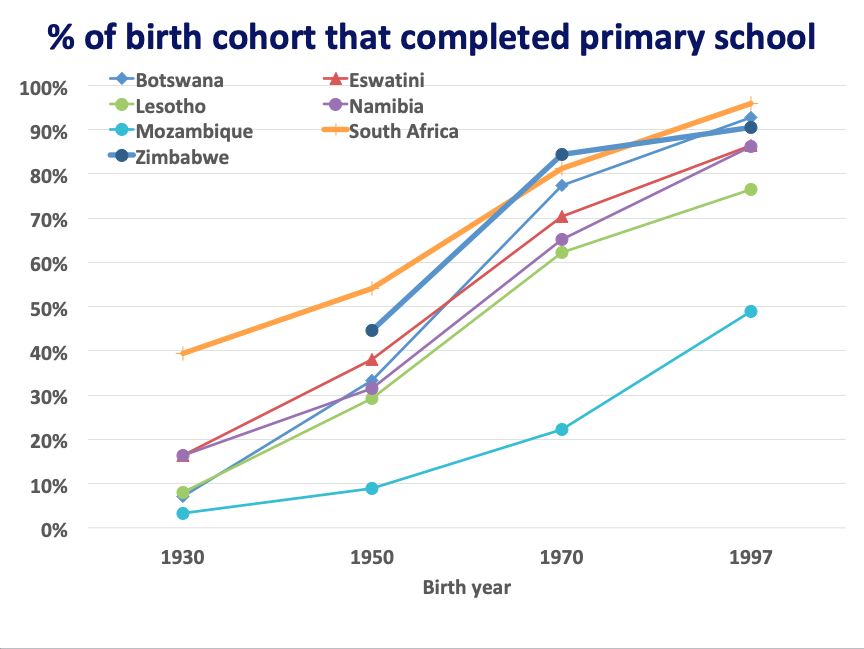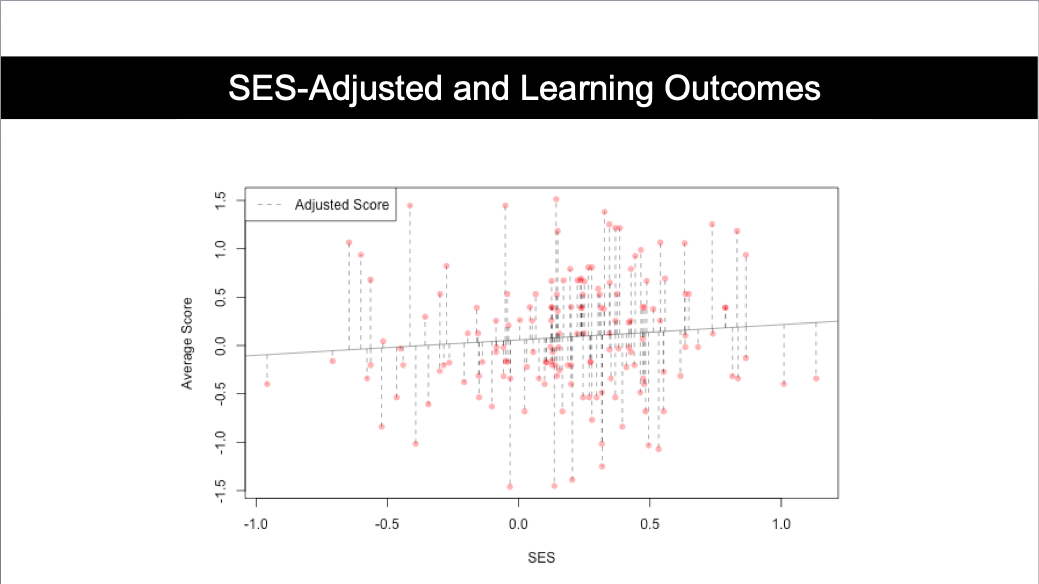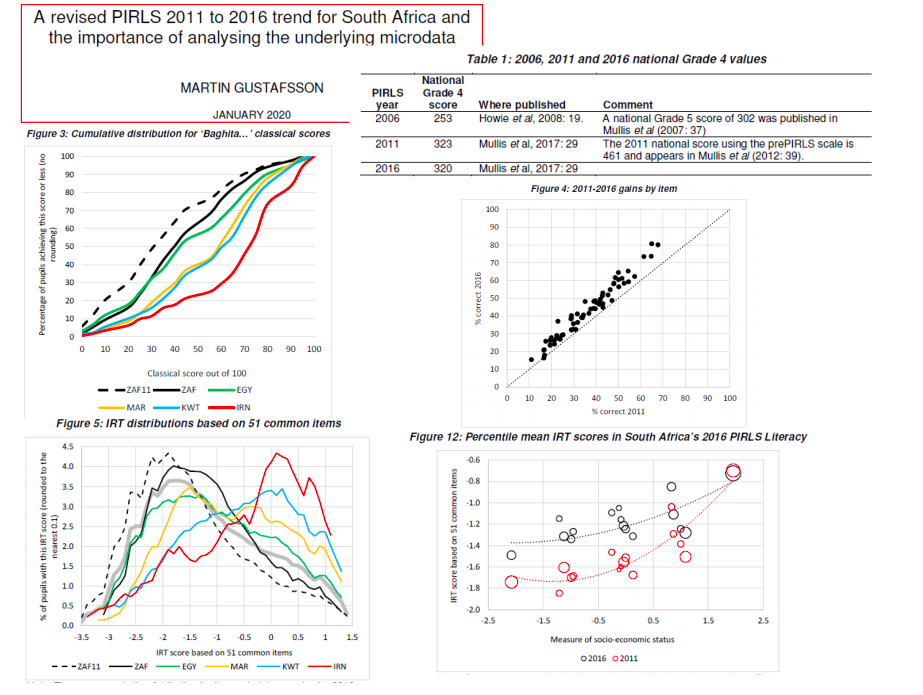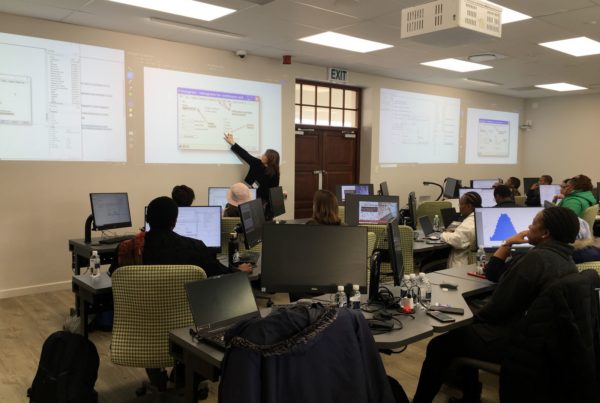RESEP hosts researchers from the UK, India, and Nepal at a two-day workshop on education research
On the 20th and 21st of February 2020, RESEP convened a workshop on education research with participation from academics from the University of Bristol (UK), the University of Bath (UK), the Tata Institute of Social Sciences (India), and Tribhuvan University (Nepal), as well as key policymakers and researchers from the DBE. Topics covered include accountability in education, with evidence from India and Nepal, the role of education in intergenerational social mobility in rural Pakistan, evidence from southern Africa regarding policy realignment between the Millennium Development Goals and the Sustainable Development Goals, and evidence from South Africa on the role of various factors in determining learning outcomes, including socio-emotional skills, school infrastructure, grade repetition, and teacher content knowledge, as well as evidence of the pro-female gender gap in learning outcomes and determinants of cognitive skills. A list of all presentations is provided below.
The workshop provided a rare opportunity to engage with academics working in contexts very similar to our own. With the majority of publications in the economics of education coming from researchers in high-income countries, it is always refreshing to share ideas about key issues in education with researchers working in other developing countries. One is reminded of the high degree of overlap in the challenges faced by education systems operating in similar contexts. A common theme during the workshop was striking heterogeneity in the characteristics of schools and the communities they serve within countries, and how the impact of education policies often differs by school context. This raises the important question of how to design policies that are responsive to local contexts. Summaries of a few selected presentations are provided below.
See the programme here.
Servaas van der Berg (RESEP): From MDGs to SDGs—Has there been education policy realignment in southern African countries?

Servaas asks whether there is evidence that southern African countries have aligned their education policies to reflect a move away from emphasizing expanding access to basic education to ensuring quality basic education for all. There is little evidence of such a policy realignment, with the focus in most southern African countries still being on expanding access to education. See slide 33 for evidence behind Servaas’s conclusion that “…while 2030, the SDG target date, is getting closer, the fundamental shifts in the educational development goals from MDGs to SDGs has not yet sunk in as an integral part of education thinking, policy and practice.”
Download the presentation here.
Robin Shields (University of Bristol): Organizational Perspectives on Accountability and Learning (OPAL): Purpose of the study and quantitative analysis

Robin presented joint work with colleagues from the Tata Institute of Social Sciences (Mumbai) and Tribhuvan University (Nepal) on a project titled Organisational Perspectives in Accountability and Learning (OPAL) which sought to investigate how accountability of schools differs by school management model and whether accountability is linked to differences in learning outcomes. The team’s findings suggest there are accountability differences between schools, but that these differences are not linked to differences in learning outcomes. Possible reasons for this include that out-of-school factors that are not captured may be driving differences in learning.
Download the presentation here.
Martin Gustafsson (RESEP, Department of Basic Education): The South Africa PIRLS trend and the difficulties of calculating and communicating education quality trends

Martin presented work from a RESEP working paper showing that South Africa’s reading outcomes have in fact improved significantly in recent years, and moreover that South Africa has shown some of the fastest gains in reading outcomes compared to other countries participating in PIRLS over the period 2011 to 2016. This result is based on the finding that South Africa’s official PIRLS score was calculated incorrectly in 2011, an error which the IEA has acknowledged in correspondence with Martin. Martin has written about this in The Conversation, and RESEP has released a policy brief summarising his findings and the implications thereof for South African education policy. See the last slide in Martin’s presentation for a summary of these implications.
Download the presentation here
Additional presentations can be downloaded below:
Grace Bridgeman: Correspondence Between Math and Math Literacy Scores
Download the presentation here.
Lilli Pretorius: Complexity Issues in Reading—Implications for Early Reading in African Languages
Download the presentation here.
Heleen Hofmeyer: Perseverance, Passion, and Poverty—Examining the Association Between Grit and Reading Achievement in High-poverty Schools
Download the presentation here.
Jesal Kika & Janeli Kotze: High Grade Repetition Patterns Changed in Light of the Progression Policy in the FET Phase?
Download the presentation here.






